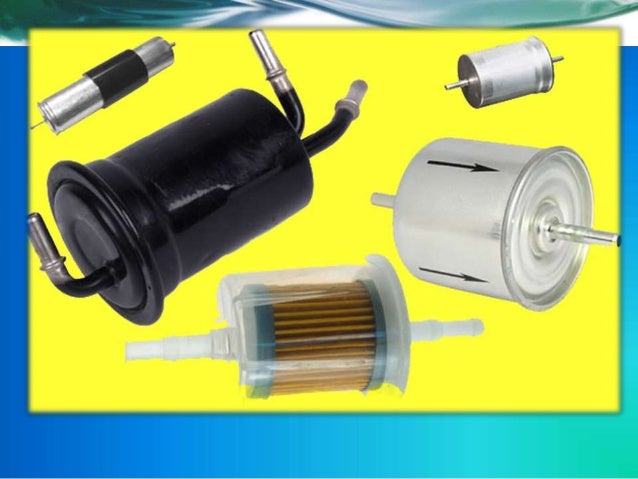How Often Should I Replace My Fuel Filter

The humble fuel filter, often overlooked in the grand scheme of automotive maintenance, plays a vital role in keeping your engine running smoothly. Its primary function is to remove contaminants like rust, dirt, and other debris from the fuel before it reaches the delicate and precisely engineered components of your fuel system – primarily the fuel injectors. Ignoring this small, inexpensive part can lead to significant (and expensive) problems down the road. But just how often should you replace your fuel filter? The answer, as is often the case in the automotive world, depends on a variety of factors.
OEM Recommendations and Why They Matter
The first and most reliable source for determining your fuel filter replacement interval is your vehicle's Owner's Manual. Original Equipment Manufacturers (OEMs) invest significant time and resources in determining the optimal maintenance schedule for their vehicles. Their recommendations take into account engine design, fuel system specifications, typical driving conditions, and fuel quality standards of the region. Sticking to these OEM recommendations, often expressed in miles or years (whichever comes first), is generally a safe bet for maintaining optimal engine performance and longevity. For example, some manufacturers like Toyota might recommend fuel filter replacement every 30,000 miles, while others like BMW could specify replacement every 60,000 miles or even longer under normal driving conditions.
Factors Influencing Fuel Filter Replacement Intervals
While the OEM recommendation provides a baseline, several factors can necessitate more frequent fuel filter changes:
- Fuel Quality: Poor fuel quality, common in some regions or when using older fuel storage tanks, introduces more contaminants into the system. Signs of this include rough idling, hesitation during acceleration, or a noticeable decrease in fuel economy. Using fuel system cleaners can help, but it's not a substitute for a clean filter.
- Vehicle Age: Older vehicles, particularly those with metal fuel tanks, are more prone to rust and corrosion, leading to increased debris in the fuel. If you have an older classic or a vintage vehicle, inspect and replace the fuel filter more frequently, regardless of the OEM recommendation.
- Driving Conditions: Vehicles driven primarily in dusty or off-road conditions are exposed to more contaminants that can find their way into the fuel system. Regular off-roading or driving on unpaved roads means you should significantly shorten the interval.
- Fuel Type: While modern gasoline engines are designed to handle ethanol blends, higher ethanol content can sometimes loosen deposits in older fuel systems, overwhelming the filter. Diesel engines, due to the nature of diesel fuel and the high-pressure fuel injection systems, are even more sensitive to fuel contamination. Diesel fuel filters are typically larger and require more frequent replacement.
Recognizing the Signs of a Clogged Fuel Filter
Being aware of the symptoms of a clogged fuel filter is crucial for proactive maintenance. Common indicators include:
- Difficulty Starting: A restricted fuel flow can make it harder for the engine to start, especially in cold weather.
- Rough Idling: The engine may idle roughly or stall due to insufficient fuel delivery.
- Hesitation or Stalling During Acceleration: When you accelerate, the engine needs more fuel. A clogged filter can't provide enough, leading to hesitation or stalling.
- Decreased Fuel Economy: A restricted fuel flow can force the engine to work harder, resulting in lower fuel mileage.
- Engine Misfires: Insufficient fuel delivery can cause engine misfires, which can damage the catalytic converter if left unaddressed.
- Fuel Pump Noise: The fuel pump may work harder to overcome the restriction, leading to increased noise and potentially premature pump failure.
Fuel Filter Location and Replacement Considerations
Fuel filter location varies by vehicle. Some are easily accessible in the engine bay, while others are located along the fuel lines under the vehicle or even inside the fuel tank. Replacement difficulty also varies, ranging from a relatively simple DIY task to a job best left to a professional mechanic, particularly if the filter is inside the fuel tank. Always relieve fuel system pressure before attempting to replace the filter. Consult your vehicle's service manual for specific instructions. When replacing the filter, use a quality replacement filter from a reputable brand, such as Bosch, Denso, or Wix. Avoid cheap, unbranded filters, as they may not provide adequate filtration and could cause further problems.
The Cost of Neglect: Beyond the Filter Itself
Replacing a fuel filter is a relatively inexpensive maintenance item. Neglecting this seemingly small task, however, can lead to much more costly repairs. A clogged fuel filter can strain the fuel pump, potentially leading to premature pump failure, which is a significantly more expensive repair. Furthermore, a lack of fuel can cause lean running conditions that can damage the catalytic converter and other engine components. Preventative maintenance, in this case, is truly cheaper than repair.
